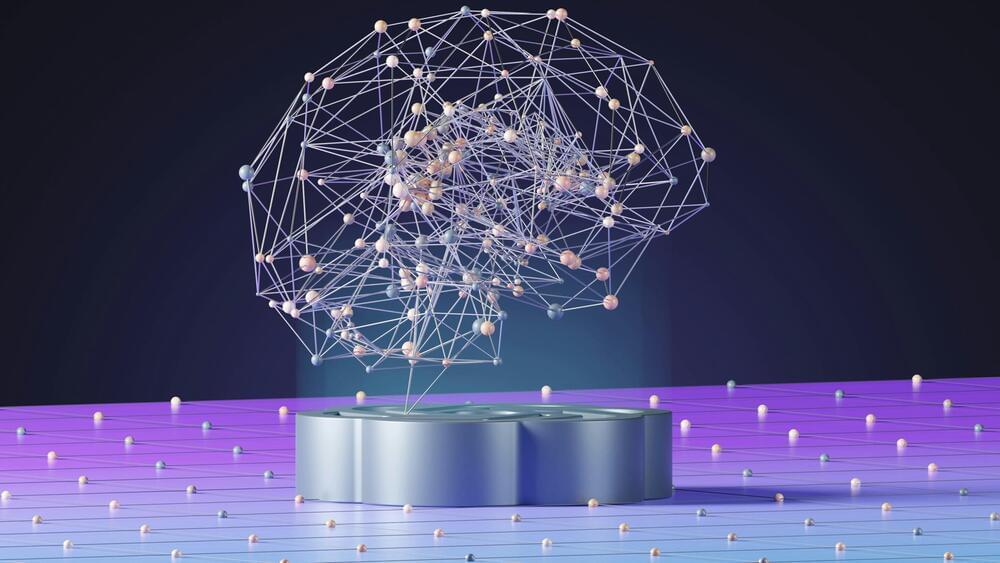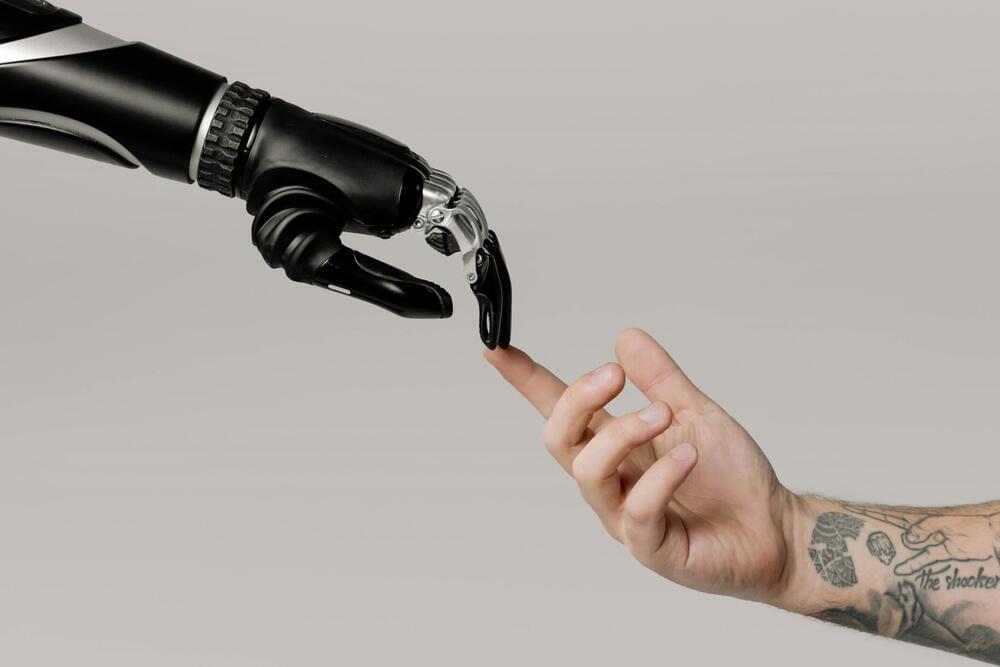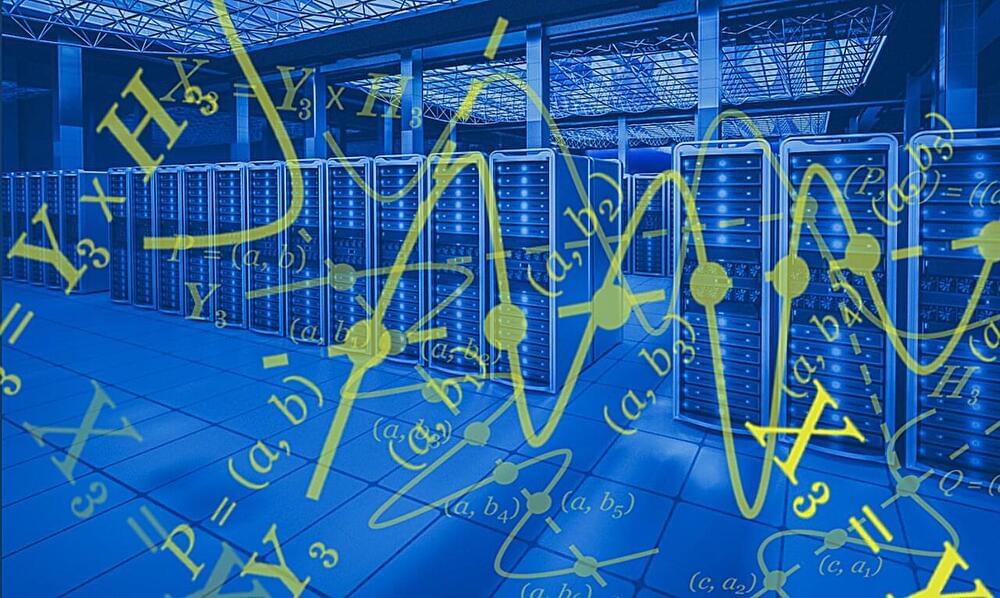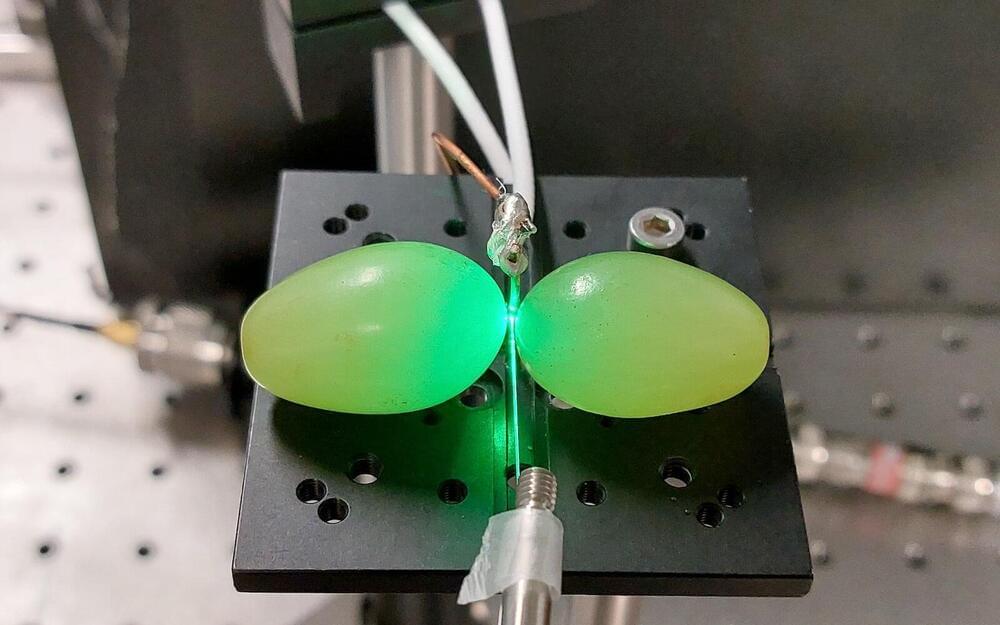A breakthrough discovery in quantum semantics.



A new artificial intelligence (AI) model has just achieved human-level results on a test designed to measure “general intelligence.”
On December 20, OpenAI’s o3 system scored 85% on the ARC-AGI benchmark, well above the previous AI best score of 55% and on par with the average human score. It also scored well on a very difficult mathematics test.
Creating artificial general intelligence, or AGI, is the stated goal of all the major AI research labs. At first glance, OpenAI appears to have at least made a significant step towards this goal.

Here’s one definition of science: it’s essentially an iterative process of building models with ever-greater explanatory power.
A model is just an approximation or simplification of how we think the world works. In the past, these models could be very simple, as simple in fact as a mathematical formula. But over time, they have evolved and scientists have built increasingly sophisticated simulations of the world as new data has become available.
A computer model of the Earth’s climate can show us temperatures will rise as we continue to release greenhouse gases into the atmosphere. Models can also predict how infectious disease will spread in a population, for example.

The manic pace of sharing, storing, securing, and serving data has a manic price—power consumption. To counter this, Virginia Tech mathematicians are leveraging algebraic geometry to target the inefficiencies of data centers.
“We as individuals generate tons of data all the time, not to mention what large companies are producing,” said Gretchen Matthews, mathematics professor and director of the Southwest Virginia node of the Commonwealth Cyber Initiative. “Backing up that data can mean replicating and storing twice or three times as much information if we don’t consider smart alternatives.”
Instead of energy-intensive data replication, Matthews and Hiram Lopez, assistant professor of mathematics, explored using certain algebraic structures to break the information into pieces and spread it out among servers in close proximity to each other. When one server goes down, the algorithm can poll the neighboring servers until it recovers the missing data.

Skoltech researchers have proposed novel mathematical equations that describe the behavior of aggregating particles in fluids. This bears on natural and engineering processes as diverse as rain and snow formation, the emergence of planetary rings, and the flow of fluids and powders in pipes.
Reported in Physical Review Letters, the new equations eliminate the need for juggling two sets of equations that had to be used in conjunction, which led to unacceptable errors for some applications.
Fluid aggregation is involved in many processes. In the atmosphere, water droplets agglomerate into rain, and ice microcrystals into snow. In space, particles orbiting giant planets come together to form rings like those of Saturn.

Macquarie University researchers have demonstrated how ordinary supermarket grapes can enhance the performance of quantum sensors, potentially leading to more efficient quantum technologies.
The study, published in Physical Review Applied on 20 December 2024, shows that pairs of grapes can create strong localized magnetic field hotspots of microwaves which are used in quantum sensing applications—a finding that could help develop more compact and cost-effective quantum devices.
“While previous studies looked at the electrical fields causing the plasma effect, we showed that grape pairs can also enhance magnetic fields, which are crucial for quantum sensing applications,” says lead author Ali Fawaz, a quantum physics Ph.D. candidate at Macquarie University.

Entanglement is perhaps one of the most confusing aspects of quantum mechanics. On its surface, entanglement allows particles to communicate over vast distances instantly, apparently violating the speed of light. But while entangled particles are connected, they don’t necessarily share information between them.
In quantum mechanics, a particle isn’t really a particle. Instead of being a hard, solid, precise point, a particle is really a cloud of fuzzy probabilities, with those probabilities describing where we might find the particle when we go to actually look for it. But until we actually perform a measurement, we can’t exactly know everything we’d like to know about the particle.
These fuzzy probabilities are known as quantum states. In certain circumstances, we can connect two particles in a quantum way, so that a single mathematical equation describes both sets of probabilities simultaneously. When this happens, we say that the particles are entangled.

The concept of vectors can be traced back to the 17th century with the development of analytic geometry by René Descartes and Pierre de Fermat. They used coordinates to represent points in a plane, which can be seen as a precursor to vectors. In the early 19th century, mathematicians like Bernard Bolzano and August Ferdinand Möbius began to formalize operations on points, lines, and planes, which further developed the idea of vectors.
Hermann Grassmann is considered one of the key figures in the development of vector spaces. In his 1844 work “Die lineale Ausdehnungslehre” (The Theory of Linear Extension), he introduced concepts that are central to vector spaces, such as linear independence, dimension, and scalar products. However, his work was not widely recognized at the time.
In 1888, Giuseppe Peano gave the first modern axiomatic definition of vector spaces. He called them “linear systems” and provided a set of axioms that precisely defined the properties of vector spaces and linear maps. Hilbert helped to further formalize and abstract the concept of vector spaces, placing it within a broader axiomatic framework for mathematics. He played a key role in the development of functional analysis, which studies infinite-dimensional vector spaces.

Reliably measuring the polarization state of light is crucial for various technological applications, ranging from optical communication to biomedical imaging. Yet conventional polarimeters are made of bulky components, which makes them difficult to reduce in size and limits their widespread adoption.
Researchers at the Shanghai Institute of Technical Physics (SITP) of the Chinese Academy of Sciences and other institutes recently developed an on-chip full-Stokes polarimeter that could be easier to deploy on a large scale. Their device, presented in a paper in Nature Electronics, is based on optoelectronic polarization eigenvectors, mathematical equations that represent the linear relationship between the incident Stokes vector and a detector’s photocurrent.
“This work was driven by the growing demand for compact, high-performance polarization analysis devices in optoelectronics,” Jing Zhou, corresponding author of the paper, told Phys.org. “Traditional polarimeters, which rely on discrete bulky optical components, present significant challenges to miniaturization and limit their broader applicability. Our main goal is to develop an on-chip solution capable of direct electrical readout to reconstruct full-Stokes polarization states.”